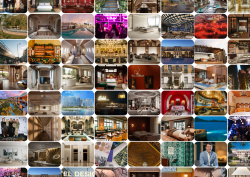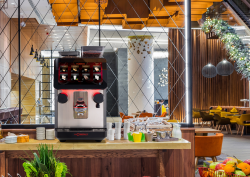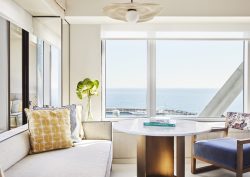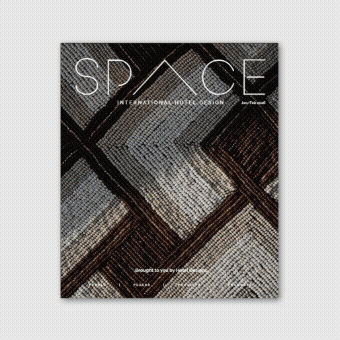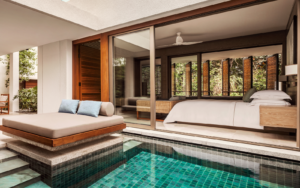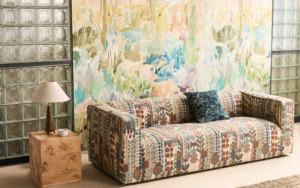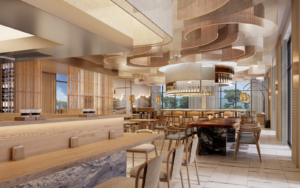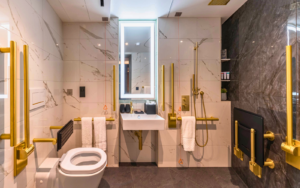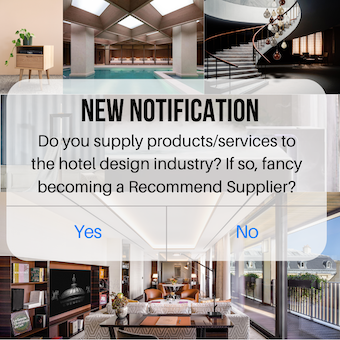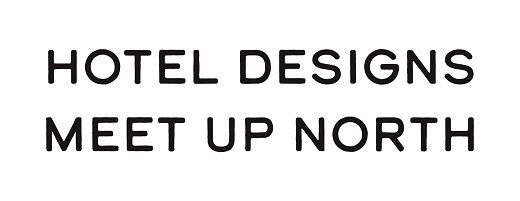In June, Hotel Designs launched its Accessible Design Talks series – an ongoing conversation exploring inclusivity within the hospitality-design sphere. For the inaugural (sold out!) panel, four experts with lived experience offered honest insights into the current barriers, breakthroughs, and possibilities of designing for genuine inclusivity…
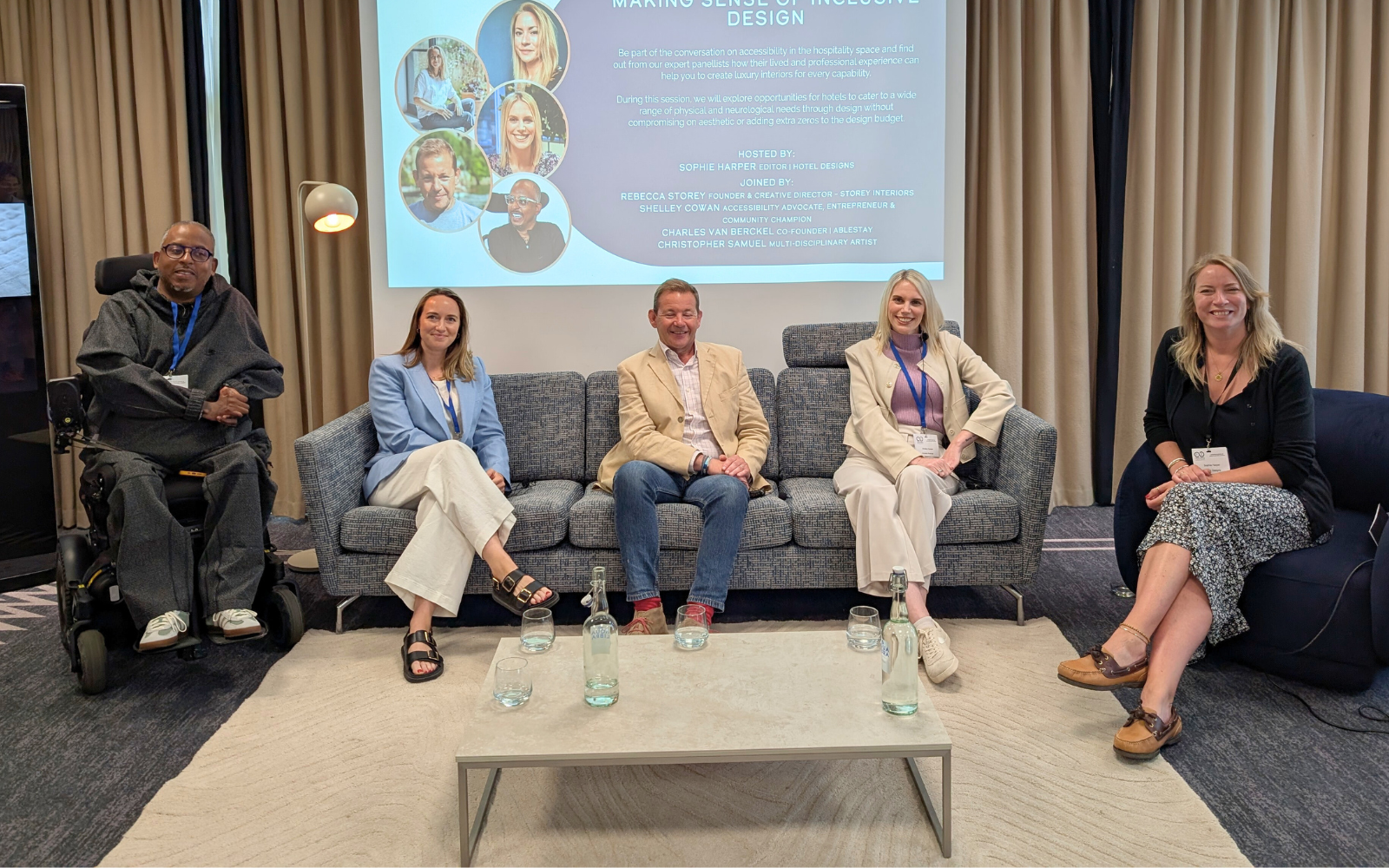
Hospitality and design have long touted innovation and luxury as their hallmarks, yet when it comes to accessibility, many spaces still feel like an afterthought. The Accessible Design Talks series by Hotel Designs began by challenging this contradiction: why is accessible design often treated as a niche or clinical requirement, rather than a baseline for all guests?

The panellists, from left to right: Christopher Samuel, multi-disciplinary Artist, Rebecca Storey, Founder and Creative Director of Storey Interiors, Charles Van Berckel, Co-Founder of AbleStay, Shelley Cowan, Accessibility Advocate, Entrepreneur and Community Champion, and host, Sophie Harper, Editor of Hotel Designs.
The inaugural panel, hosted by Hotel Designs Editor Sophie Harper, brought together four experts with lived experience of this very issue. The speakers – Christopher Samuel, Rebecca Storey, Charles Van Berckel, and Shelley Cowan – shared personal stories and professional insights that exposed the gap between luxury design ambition and the reality for many disabled guests.
Each highlighted that accessibility is not just a matter of regulation or compliance but a vital component of hospitality that affects how people feel, move, and belong in a space. As one panellist noted, finding accessible accommodation that combines functionality with comfort and style remains a challenge; transforming what should be a restorative experience into a source of stress.
The human impact of design failures
Beyond the design aesthetics, the panellists highlighted the profound human impact of inaccessible spaces. They recounted personal stories of being turned away, facing humiliations, or struggling with inadequate facilities when travelling – experiences that starkly contradict the very essence of hospitality. The narrative is clear: exclusion in design is exclusion in experience.
A recurring theme was the importance of dignity and independence. For disabled guests, being able to access a bathroom or move comfortably within a room should not be a ‘luxury’ – it is fundamental. The absence of thoughtful design compromises privacy, safety, and even basic hygiene, creating a barrier to participation in society and travel.
-
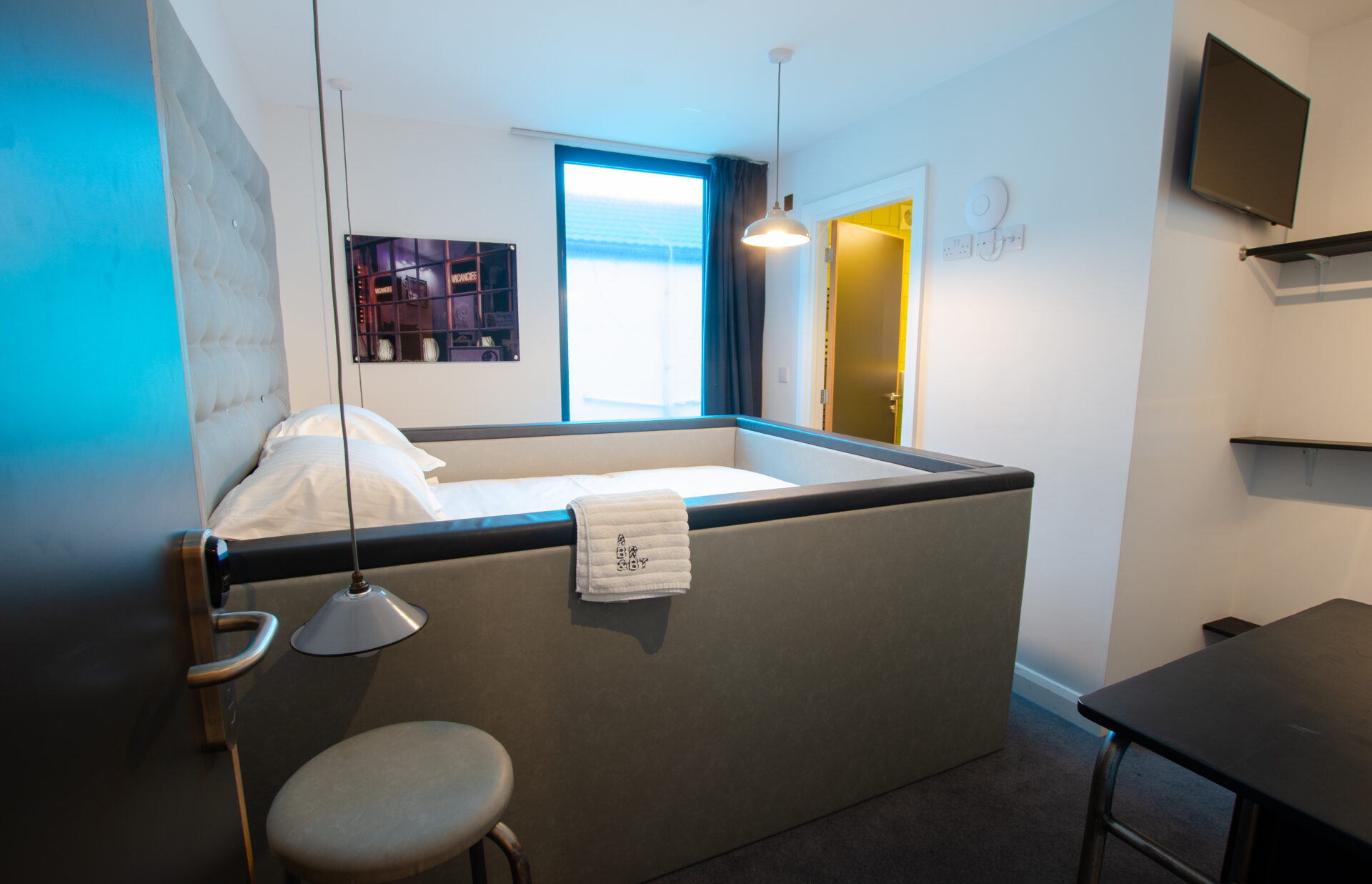
- In 2019, Christopher Samuel designed the Welcome Inn, a Sleep-in Installation at Art B&B in Blackpool: a space for people to experience inaccessibility and to challenge the concept that access is ‘one size fits all’. It included a bed that was too tall, lights that hung too low, and an inaccessible bathroom space.
-
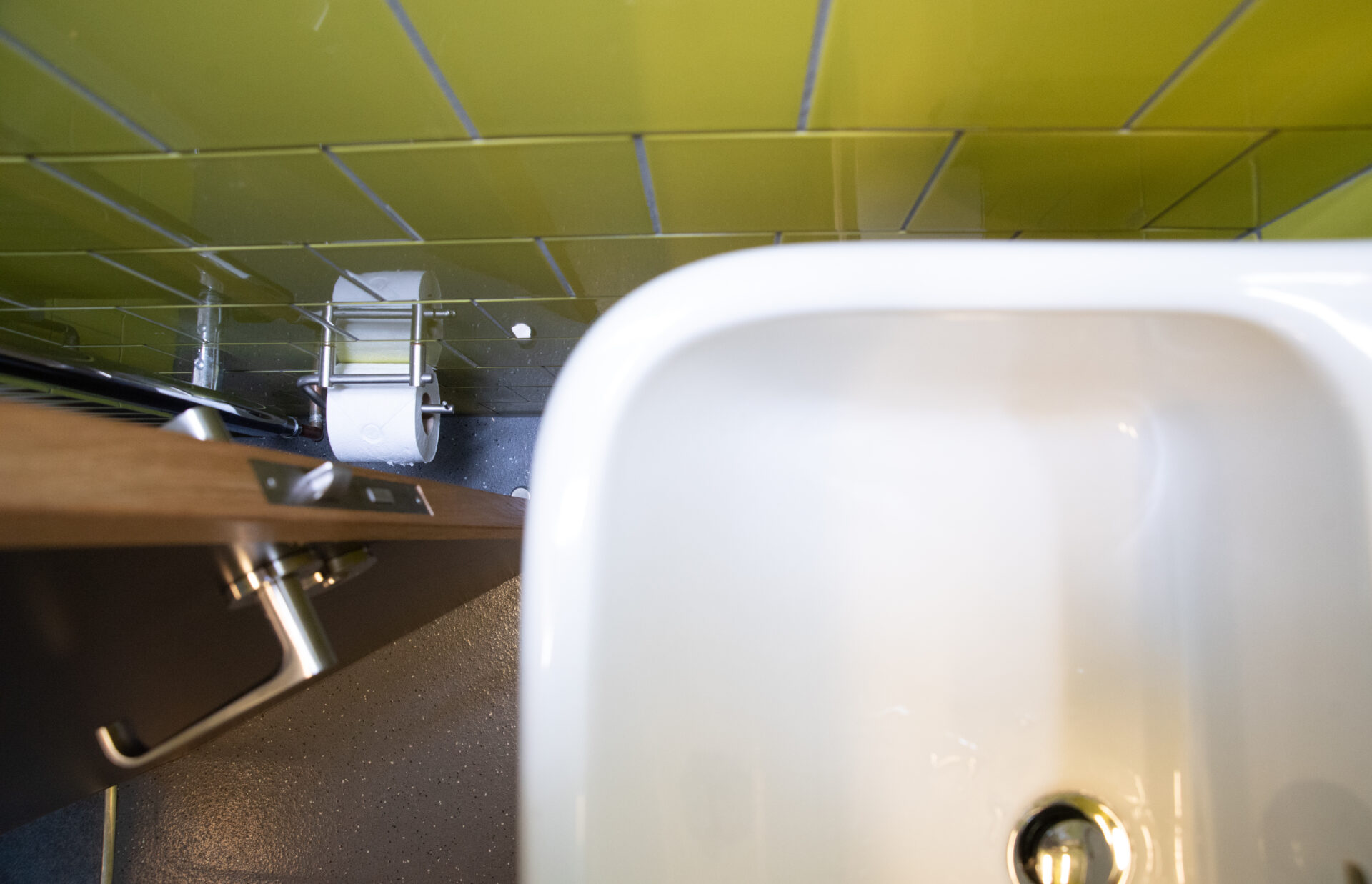
- Welcome Inn was about designing a space that needed to be experienced to be understood; a slightly theatrical space, one that targets non-disabled people | Credits: Welcome Inn (2019) by Christopher Samuel | Images by Claire Griffiths.
Accessible design isn’t about compromise
A key insight from the discussion was the need to challenge outdated perceptions of accessible design. The assumption that accessible spaces must look clinical or be visibly ‘different’ was refuted repeatedly. Instead, the panel argued for an integrated approach that marries functionality with beauty and luxury.
Becky Storey, an Interior Designer and Founder of Storey Interiors, shared examples of boutique accommodations where accessibility equipment is seamlessly incorporated into stylish interiors, such as at AbleStay – London’s first fully accessible holiday home, Founded by panellist Charles Van Berckel. Becky’s point was clear: accessible design can be elegant and inviting, enhancing the guest experience for everyone, not just those with disabilities.
The conversation explored innovative solutions like recessed ceiling hoists, multi-purpose grab rails, and adjustable wardrobe fittings. For designers, incorporating such innovative solutions should be seen as an exciting chance to spread their creative wings, not as an ‘issue’ to resolve. Moreover, design elements such as adjustable fittings can serve dual functions and offer tailoring to non-disabled guests too – after all, inclusivity is about designing for all.
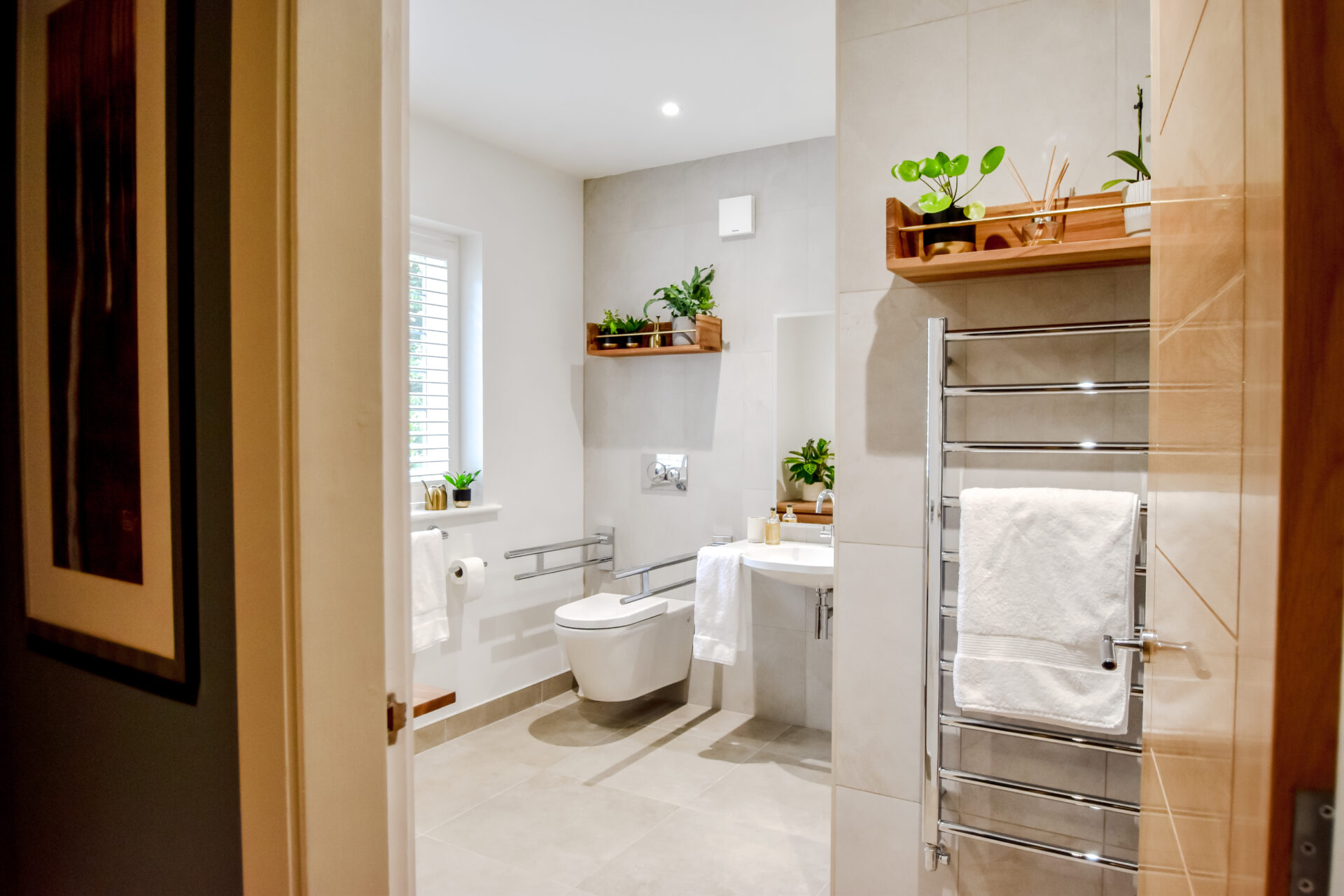
For Becky Storey, her designs focus on the beautiful and the functional. Here shows a recent project by Storey Interiors: a stylish yet accessible bathroom designed for a wheelchair user and their family | Image credit: Storey Interiors.
Universal design is good business
The panel championed universal design – a philosophy that creates spaces usable by everyone, regardless of age or ability. From families with young children to elderly guests or those with temporary injuries, inclusive design benefits far more than disabled travellers.
Simple, thoughtful choices like low-pile carpets, slip-resistant flooring, and dual-purpose fixtures (such as grab-bar towel rails) were cited as examples of how functionality can enhance rather than compromise aesthetics. These details make spaces safer, more welcoming, and ultimately more luxurious for all guests.
Importantly, the panel urged designers to avoid isolating accessible rooms as ‘special’ or separate. Instead, adaptable, interchangeable spaces should be the norm – meeting diverse needs without drawing unnecessary attention.
Shelley Cowan highlighted the strong economic case too: with the UK’s ‘purple pound’ estimated at £274 billion, inclusive design opens the door to an underserved and loyal market. The message was clear – accessibility is not a cost, it is a smart investment.
What is stopping designers and developers?
Despite clear benefits, the panel acknowledged that barriers remain. Lack of client knowledge, budget constraints, and insufficient understanding of accessibility needs often limit progress. The discussion referenced legislation and building regulations, but noted these often set minimum standards rather than inspiring excellence.
The speakers encouraged a proactive mindset, suggesting that the industry needs to move beyond compliance toward embracing accessibility as an opportunity for creativity and differentiation.
-

- Storey Interiors recently transformed a second living room into a beautiful, wheelchair accessible bedroom, within a family home. Carpet flooring was replaced for wooden planks to make it easier for the client’s wheelchair, and the space around the bed was kept clear to ensure good turning space.
-
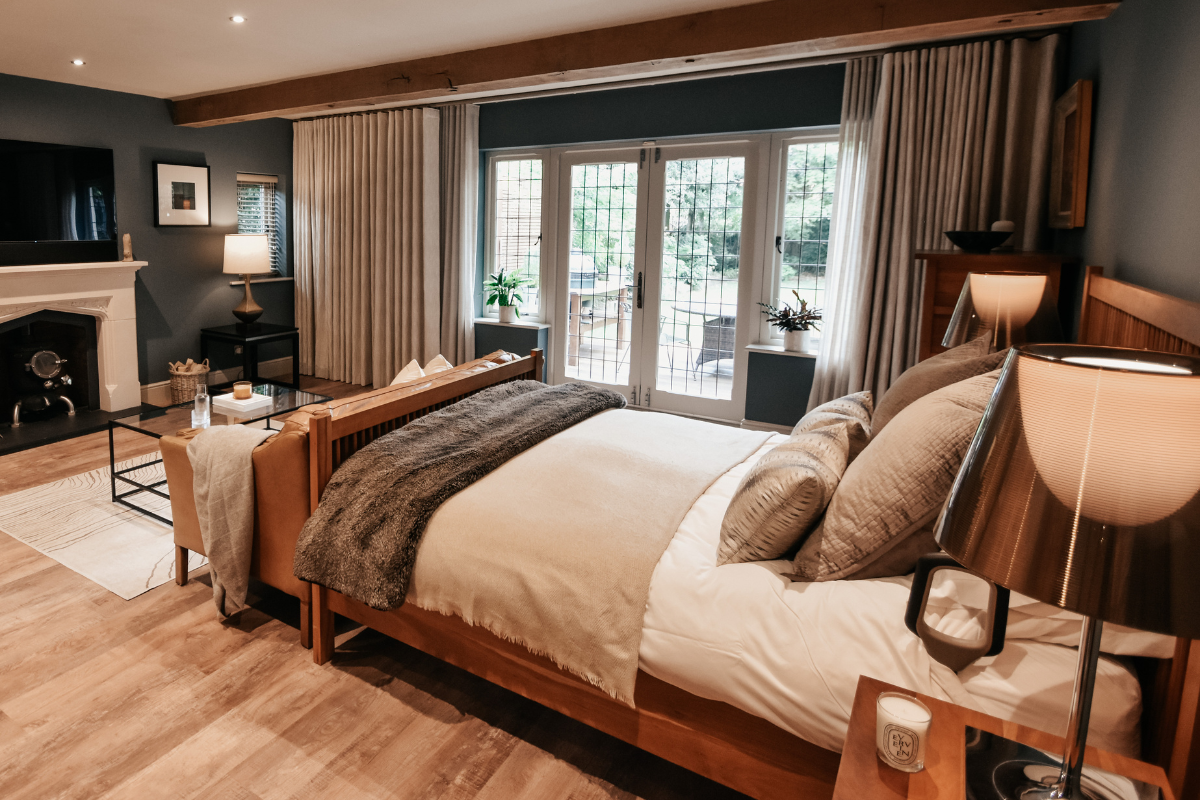
- As this bedroom shows, accessible design can be seamlessly incorporated into elegant and inviting interiors which enhance the experience for all – not just those with disabilities | Image credits: Storey Interiors.
How to move forward
As the talk drew to a close, the experts stressed that real progress requires collaboration among designers, clients, architects, and hospitality operators. They highlighted the importance of lived experience as guiding design decisions and urged the industry to embed accessibility into every stage of planning.
The panel encouraged small daily commitments toward improvement – recognising that change is a journey rather than an overnight fix. They invited everyone to join the conversation and continue advocating for inclusive spaces.
So, why shouldn’t luxury be accessible?
The discussion returned to a fundamental question: why is accessibility often excluded from luxury? With luxury defined as ‘a state of great comfort or elegance, especially when involving great expense’, exclusion renders even the most luxurious spaces austere – at least for some, if not for many.
Through honest dialogue and practical insights, the panel demonstrated that accessible design is not only achievable but essential. When accessibility is embraced as a core value, hospitality can become truly inclusive – where luxury is not a privilege for some who take part, but an experience that everyone can share.
If you want to learn more about accessible design or contribute to the conversation, stay tuned for upcoming panel talks in the series, where these important issues will continue to be explored and amplified. Our second panel took place at MEET UP North 2025, while our third panel will take place at the Independent Hotel Show, 6 – 7 October, 2025, at London Olympia – more details to follow.
Main image credit: Hotel Designs








